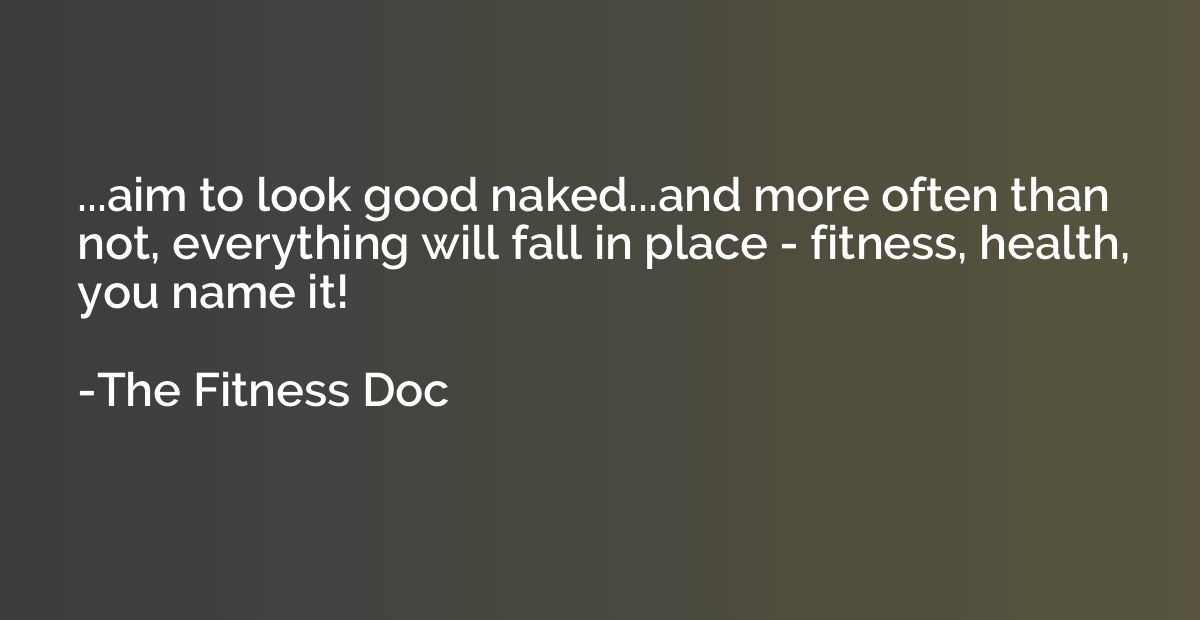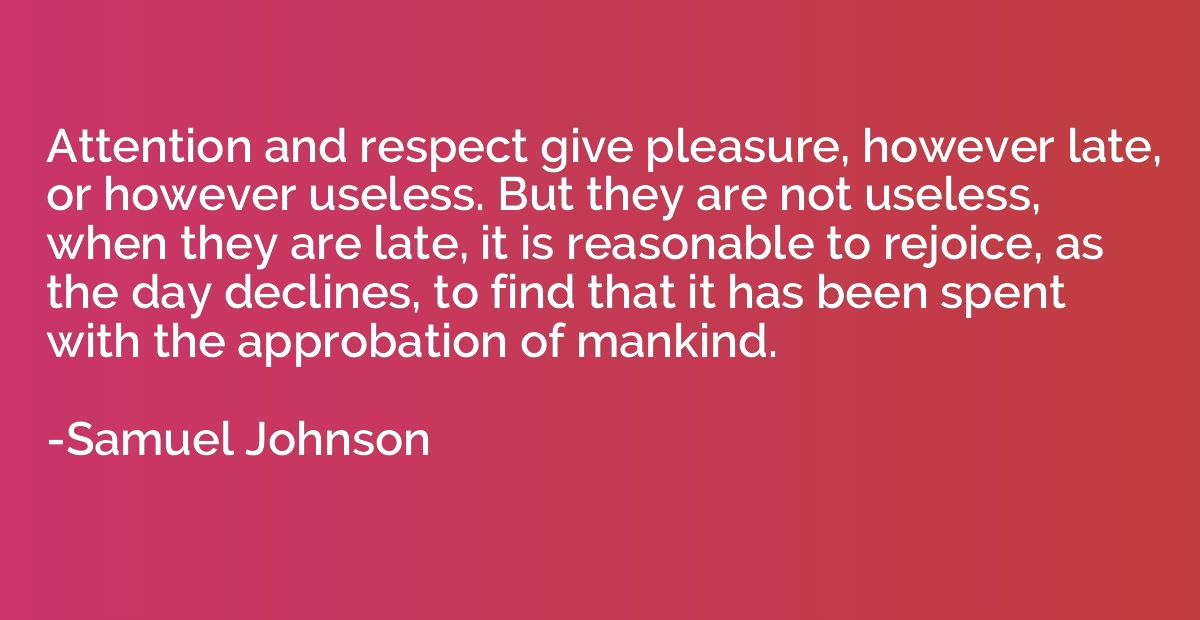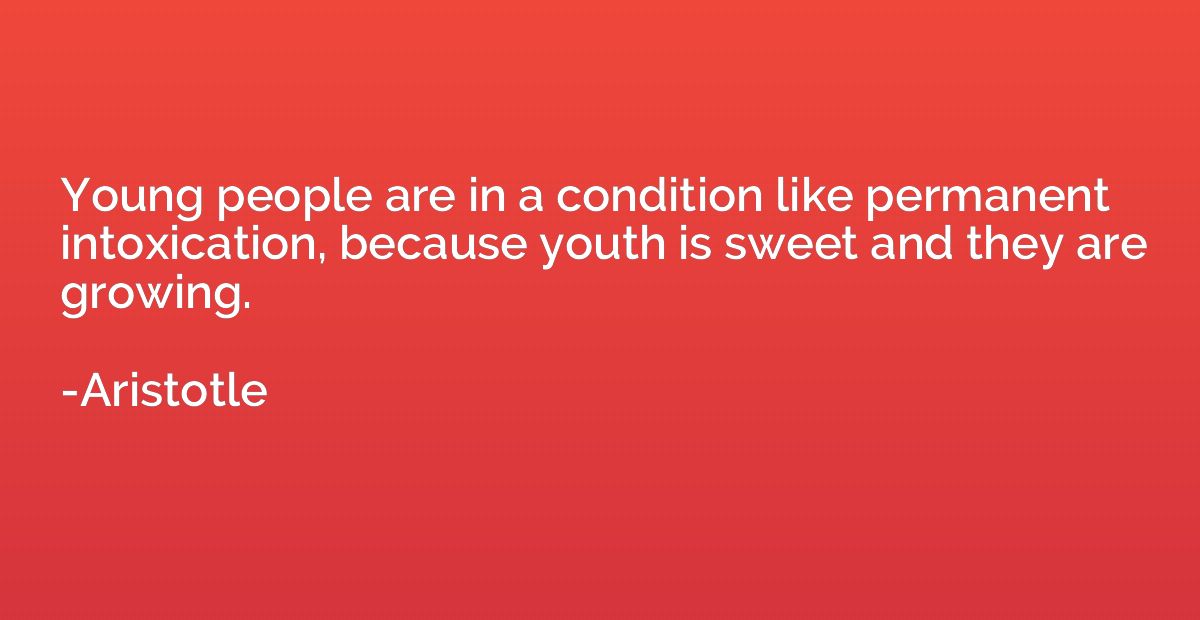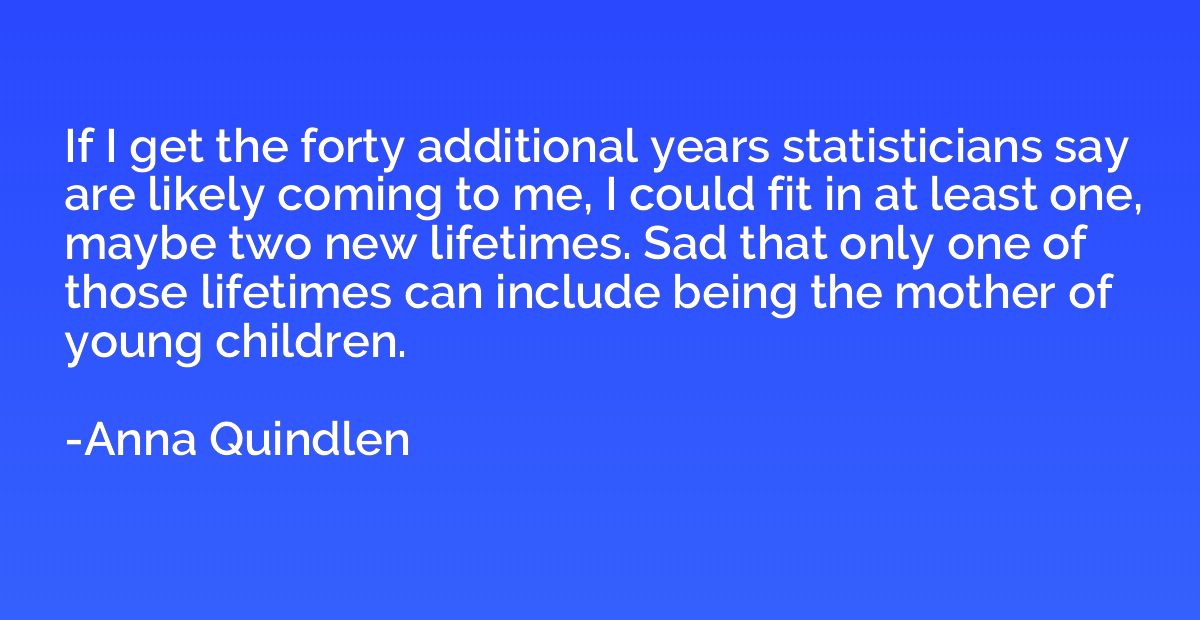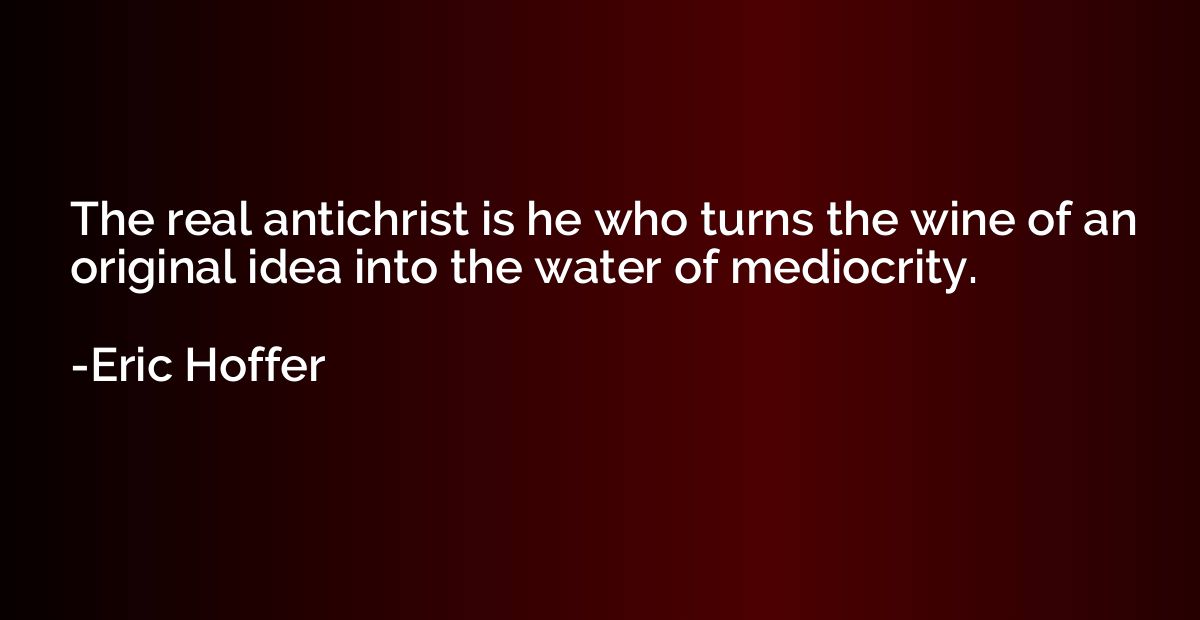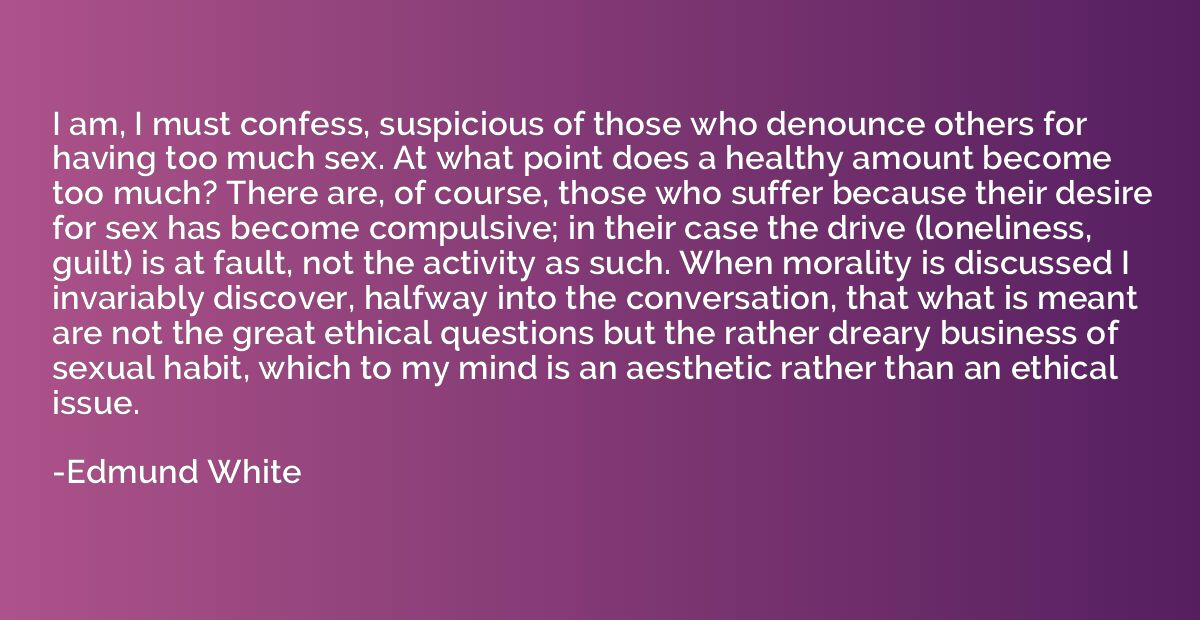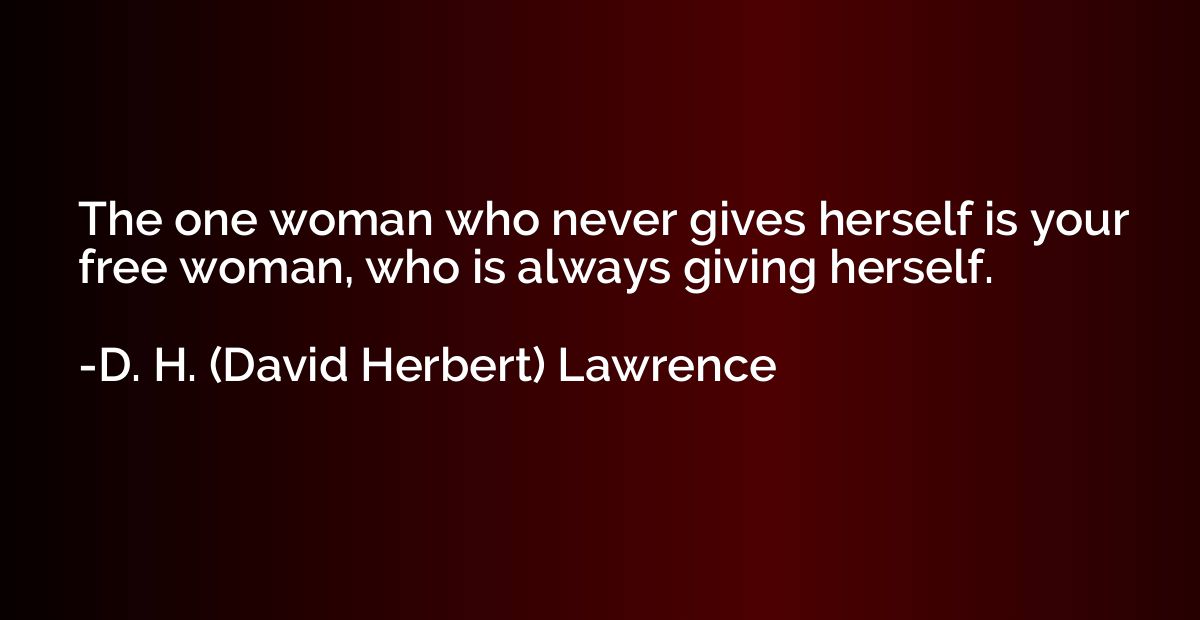Quote by David Herbert Lawrence
Men are freest when they are most unconscious of freedom. The shout is a rattling of chains, always was.
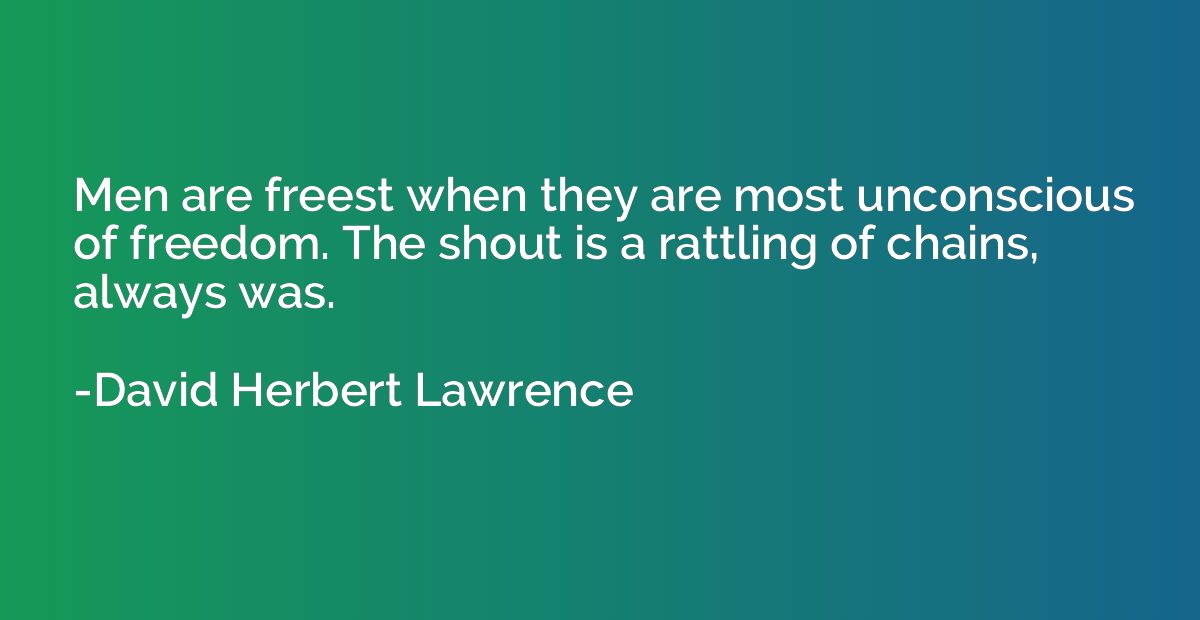
Summary
This quote suggests that individuals are actually most free when they are unaware or unbothered by the concept of freedom. It implies that consciously striving for freedom might result in a false sense of liberation or even lead to self-imposed limitations. The "shout" mentioned is symbolic of the pursuit of freedom, which is depicted as a noisy disturbance, reminiscent of chains that bind and restrict. In essence, the quote implies that true freedom lies in a state of contentment rather than actively seeking liberation.




